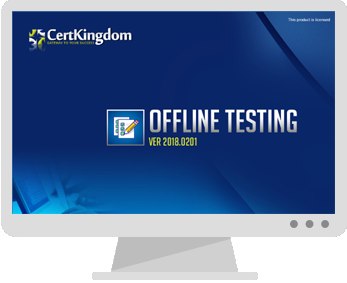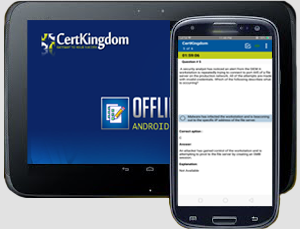Exam: 1Z0-1065-23

|
|||||||||||||||||||||||||||
Earn associated certifications
Passing this exam is required to earn these certifications. Select each
certification title below to view full requirements.
Oracle Fusion Cloud Procurement 2023 Certified Implementation Professional
Format: Hands-on Performance Based
Duration: 90 Minutes
Exam Price: $25
Number of Questions: Not Applicable
Passing Score: Challenges - 75% | Multiple choice - 75%
Validation: This exam has been validated against 22A/22B/22C/22D/23A/23B.
Policy: Cloud Recertification
Prepare to pass exam: 1Z0-1065-23
The Oracle Fusion Cloud Procurement 2023 Certified Implementation
Professional certification is a Hands-on Performance based Professional level
certification comprising of hands-on challenges and multiple choice questions.
You will need to pass each of the sections individually to achieve the
certification credential. You will receive an overall result.
An Oracle Fusion Cloud Procurement 2023 certified Implementation Professional
demonstrates a strong foundation and expertise in implementing Oracle
Procurement Cloud solutions. Individuals who earn this certification covers
topics such as Purchasing, Self Service Procurement, Sourcing, Supplier
Qualification Management, and Procurement Contracts.
If you have a valid Oracle Fusion Cloud Procurement Implementation Professional
Certification, and your credential has not expired, you can maintain your
certification by taking the corresponding shorter Delta exam.
Check the Oracle Recertification Policy to see if you qualify.
Take recommended training
Complete one of the courses below to prepare for your exam (optional):
Become a Certified Procurement Cloud Implementer
Additional Preparation and Information
A combination of Oracle training and hands-on experience (attained via labs
and/or field experience), in the learning subscription, provides the best
preparation for passing the exam.
Review exam topics
Procurement Application Overview
Explain Procurement concepts and components
Explain simplified Procure to Pay flow
Fusion Functional Set Up Manager
Explain the Application implementation lifecycle
Manage an Implementation
Common Applications for Procurement
Explain Enterprise Structures
Configure Applications security, Job roles, Duty roles, and Privileges
Create Business Units, Common Payables and Procurement options, and Approval
Management for Procurement
Common Procurement
Manage Supplier configuration and Supplier site assignment
Define Supplier Business Classification, Supplier Products and Services Category
Hierarchy
Common Procurement Setups (Payment Terms, UOM, Carriers, Hazard Classes,
Freight, Purchasing Profile Options, Procurement Document Numbering)
Purchasing
Define Purchase Document Configuration and Document Styles
Define Business Unit Function Configuration, Configure Procurement Business
Unit, Document Types, Change Order Template, Receiving Parameters for Purchasing
Create Line Types and Change Orders, and assign Procurement agents
Set up Procurement of Consigned Inventory from Supplier, Transaction Manager,
Shared Service Center, B2B Communication
Self Service Procurement
Explain Self Service Procurement
Manage Profile Options, Catalog Categories, Content Maps, Configure
Requisitioning Business Functions and Requisition Approvals
Create Public Shopping Lists, Smart Forms, Catalog-Category Hierarchies,
Templates and Punch Out
Supplier Portal
Explain objectives, Portal Setup, and maintenance
Create Portal Registration, Supplier Provisioning, and Default Roles
Explain Supplier business classification, internal and external supplier
registrations
Sourcing
Explain Sourcing configuration objectives
Use Negotiation styles and Templates
Create Cost Factors, Attribute lists, Negotiation lookups, and Negotiation lists
Configure Negotiation and Award Approval, Surrogate Bidding, Online Messages,
Two-Stage RFQ
Supplier Qualification Management (SQM)
Configure SQM and create Questions, Qualification Areas, and Models
Set up SQM Processes and manage Transactions, including Initiatives, Responses,
Evaluation of Assessments, and Qualifications
Procurement Contract
Configure a Contract Terms Library
Create Contract Terms, Procurement Contract, Approvals, and Contract Fulfillment
Project-Driven Supply Chain (PDSC)
Configure Project-Driven Supply Chain
1Z0-1065-23 Brain Dumps Exam + Online / Offline and Android Testing Engine & 4500+ other exams included
$50 - $25 (you save $25)
Buy Now
QUESTION 1
An electronics parts manufacturer has decided to implement only the Purchasing
application from
the Oracle Fusion Cloud Procurement pillar.
Which setup component will they NOT require for this implementation?
A. Document Style
B. Change Order Template
C. Requisitioning Business Function
D. Cost Factors
E. Procurement Agents
Answer: D
Explanation:
Cost factors are used to identify charges associated with a negotiation line in
addition to price, such
as shipping and handling, retooling, or import duties. Cost factors are part of
the Supplier
Negotiation application, which is not required for implementing only the
Purchasing application. The
other options are all setup components that are needed for the Purchasing
application.
Reference:
Create Cost Factors
REST API for Oracle Fusion Cloud Procurement - External Cost Factors and
External Cost Factors
QUESTION 2
You have the following business requirements when creating an implementation
project:
You want to see the list of offerings and functional areas that are configured
for the project.
You want to identify at which stage all offerings and functional areas are.
Which two fulfill these requirements?
A. Select the Enable check box to specify the options.
B. After creating the implementation project, set the status of tasks to in
Progress or Implemented.
C. Although the offering configuration can be changed at any time, the changes
will influence any existing implementation task lists.
D. Change Provisioned to "No" to specify the offering that you want to select
while creating an implementation project.
E. You need the IT Security role to fulfill these requirements.
Answer: A, B
Explanation:
When you create an implementation project, you can select the offerings and
functional areas that
you want to implement by selecting the Enable check box for each option. This
will generate a list of
setup tasks for the selected options. You can also see the status of each
offering and functional area,
such as Provisioned, Enabled, or Not Enabled. After creating the implementation
project, you can
update the status of each task to indicate the progress of the implementation.
You can set the status
to In Progress, Implemented, or Not Applicable. This will help you to identify
the stage of each
offering and functional area in the implementation project.
Reference:
How You Use Implementation Projects to Manage Setup
Oracle Fusion Applications Procurement Implementation Guide, Section 2.1:
oeCreate Implementation Project
QUESTION 3
You need to set up a Procurement business unit to serve the procurement
needs of various Requisitioning business units.
What must you set up in Oracle Fusion Cloud Procurement to meet this
requirement?
A. Spend Authorized relationship between a Supplier and a Requisitioning
business unit
B. Default Requisitioning business unit relationship in the Procurement Agent
setup
C. Default Procurement BU relationship in the Requisitioning business function
setup
D. Service Provider relationship in the Requisitioning business unit setup
Answer: D
Explanation:
To set up a Procurement business unit to serve the procurement needs of various
Requisitioning
business units, you must set up a Service Provider relationship in the
Requisitioning business unit
setup. This relationship defines the Procurement business unit as the service
provider of the
procurement business function, and the Requisitioning business units as its
clients. This way, the
Procurement business unit can take care of supplier negotiations, supplier site
maintenance, and
purchase order processing on behalf of the Requisitioning business units. The
other options are not
relevant for this requirement.
Reference:
1: Service Provider Models - Oracle
2: Implement Procurement - docs.oracle.com
[3]: Setup Steps in Oracle Fusion Cloud Procurement
QUESTION 4
You should regularly run reports to protect against fraud.
Which task do you use to select the attributes to be monitored for a supplier
model?
A. Configure Procurement Business function
B. Manage Common Options for Payables and Procurement
C. Manage Transmission Configurations
D. Configure Supplier Registration and Profile Change Request
E. Manage Audit Policies
Answer: E
Explanation:
To select the attributes to be monitored for a supplier model, you use the
Manage Audit Policies task
in the Setup and Maintenance work area. This task allows you to enable auditing
for various business
objects, such as suppliers, supplier sites, supplier contacts, and supplier bank
accounts. You can also
select the attributes of each business object that you want to audit, such as
supplier name, address,
tax number, and so on. By enabling auditing, you can track the changes made to
the supplier model
and generate audit reports to protect against fraud.
Reference:
Overview of Audit Configuration, Section 2.1: oeEnable Auditing for Business
Objects
Supplier Profile Audit History Setup and Reporting, Section 1: oeSupplier
Profile Audit History Setup and Reporting
QUESTION 5
You want to send your purchasing documents from a specific organization-wide
email address.
What task would you use to set this up?
A. Manage Purchasing Application Core Messages
B. Manage Purchasing Profile Messaging Options
C. Manage Purchasing Value Sets
D. Manage Purchasing Profile Options
E. Manage Purchasing Messages
Answer: D
Explanation:
To send your purchasing documents from a specific organization-wide email
address, you need to use
the task Manage Purchasing Profile Options. This task allows you to configure
various profile options
that control the behavior and functionality of the Purchasing application. One
of these profile options
is PO: Email Sender Address, which specifies the email address that appears in
the From field of the
email notifications sent to suppliers and internal users. You can set this
profile option at the site level
to apply it to all business units, or at the product level to apply it to a
specific business unit.
Reference:
Implement Procurement - docs.oracle.com
PRC:PO: Supplier Communication from Email Address ¦ - My Oracle Support
PRC:PO: Sending Purchase Order (PO) Email ¦ - My Oracle Support
Buy Complete
Certainly, here's a rewritten version of your text:
Packiam Vijendran 1 months ago - Malaysia
Passed the exam yesterday, 95% of the question were from this site. Note: Pay
more attention to all the community discussions on each question, instead of the
answers provided by the examtopics and I strongly suggest to get the contributor
access.
upvoted 4 times
Javier Cardaba Enjuto 2 months, 1 week ago - Spain
Excellent pre-exam session tool
upvoted 2 times
Palanisamy Arulmohan 1 months, 1 week ago - USA
I passed today, 94 questions asked and 99% of them were in this dump.
3 labs: BGP (as-override), HSRP, OSPF (without network statement)
upvoted 4 times
peppinauz 3 months, 2 weeks ago
I pass my exam, dump is valid about 90-95%. review the community answers!!
upvoted 6 times
Oberoi Ankit3 months, 3 weeks ago - USA Texas
Passed exam today dump still accurate. almost all the questions are here, some
are overcomplicated or incomplete on the site,
upvoted 4 times
logged members Can Post comments / review and take part in Discussion
Certkingdom Offline Testing Engine Simulator Download
Prepare with yourself how CertKingdom Offline Exam Simulator it is designed specifically for any exam preparation. It allows you to create, edit, and take practice tests in an environment very similar to an actual exam.
Supported Platforms: Windows-7 64bit or later - EULA | How to Install?
FAQ's: Windows-8 / Windows 10 if you face any issue kinldy uninstall and reinstall the Simulator again.
Download Offline Simulator-Beta
Certkingdom Testing Engine Features
- Certkingdom Testing Engine simulates the real exam environment.
- Interactive Testing Engine Included
- Live Web App Testing Engine
- Offline Downloadable Desktop App Testing Engine
- Testing Engine App for Android
- Testing Engine App for iPhone
- Testing Engine App for iPad
- Working with the Certkingdom Testing Engine is just like taking the real tests, except we also give you the correct answers.
- More importantly, we also give you detailed explanations to ensure you fully understand how and why the answers are correct.
Certkingdom Android Testing Engine Simulator Download
Take your learning mobile android device with all the features as desktop offline testing engine. All android devices are supported.
Supported Platforms: All Android OS EULA
Install the Android Testing Engine from google play store and download the app.ck from certkingdom website android testing engine download

Certkingdom Android Testing Engine Features
- CertKingdom Offline Android Testing Engine
- Make sure to enable Root check in Playstore
- Live Realistic practice tests
- Live Virtual test environment
- Live Practice test environment
- Mark unanswered Q&A
- Free Updates
- Save your tests results
- Re-examine the unanswered Q & A
- Make your own test scenario (settings)
- Just like the real tests: multiple choice questions
- Updated regularly, always current




